How Do You Know if a Team You've Made is Good?
10min 48sec read
Learn how to assess the teams you build.
Written by Aaron Traylor
Teambuilding / Getting Ready For Battles
Although it's hard to paint things as good or bad in VGC because so many aspects of the game are subjective and contextual, you probably want to know if you're on the right track when you're teambuilding. I've come up with some examples of positive indicators that I look for to tell me if I'm working in the right direction.
The Team Is Fun
Pokémon is a game and I want to have fun, even if I'm taking it super seriously and competitively. If I'm enjoying playing a team in my battles– even my most serious ones, or the ones that I lose– that's the first sign that I want to keep moving forward with that team.
You're In Control
You should feel like you have lots of options in your games-- you should feel like there are many paths to victory, and you shouldn't feel like you're forced to make any moves on any given turn or you’ll lose immediately. I like it when a team allows me to be a better player than my opponent (but doesn’t require me to be better than them). Pay attention to when your Pokémon are acting proactively and reactively. If your opponents are threatened to respond to your Pokémon or risk losing ground, you're in the driver's seat, and you're able to direct the course of the battle.
Furthermore, a good team will make it easy for you to win games– winning should feel natural, and you shouldn't have to invest too much cognitive effort to get the Pokémon to do what you want them to do. In other words, the Pokémon should do the work. That's not saying that every game will be easy– many of your games will be hard– but when your Pokémon make your life easier, you're able to play in a way you feel comfortable with, and that's what leads to success in battles.
You Know Your Weaknesses, and You're Okay With Them
Every team will have weaknesses, even if it's the best team you've ever made. Be up front with yourself about your team's weaknesses and what you have to do to win against them. If you've made a threatlist, identify which Pokémon and teams you're strong against, and think about how common your weaknesses are. If your team is naturally advantaged versus common Pokémon and archetypes, that's a great indicator of future success. And if the elements which you are weaker against are less common– you might be able to make it through a tournament without ever battling against them.
“Remember, not all weaknesses are created equally. I personally am ok with having some harder matchups, but I try to avoid matchups that put me at an especially large disadvantage. There is a difference between “this matchup will be hard for me but if I play well I can win” and “I have almost no options in this matchup, even if I play much better than my opponent I may still lose”.”
Consistency is Key
Especially if you're interested in best of 3 tournament play, good teams are consistent: they work even if the opponent knows most of the details or has played against the team before. You'll play the same opponent in both Swiss and Top Cut more frequently than you expect. I spend most of my time in practice making sure my teams consistently work in best of 3 because I think it’s the best way to identify whether a team will work for me in a tournament. Check out our consistency checklist for more information about how you can identify whether your team is consistent.
Wrapping Up
At the end of the day, metagames advance and change, and a team’s performance is often bound to the changes in context like a boat is to a current. I build teams to be used in a particular time and place, and the above criteria help me decide when I’m ready to take a team to a tournament. Use my ideas to come up with your own list of indicators that a team is ready for whatever situation you want to use it in.

